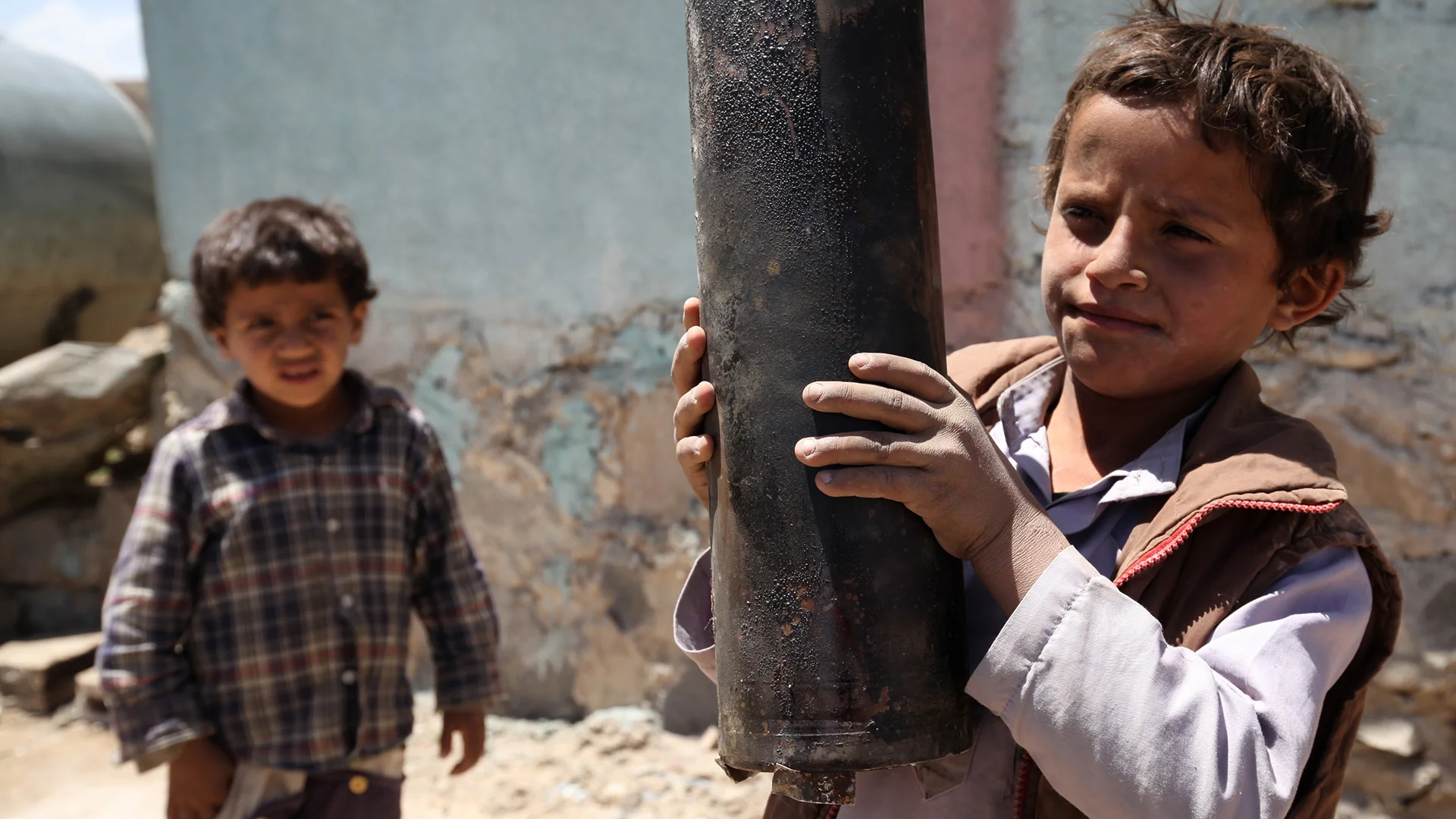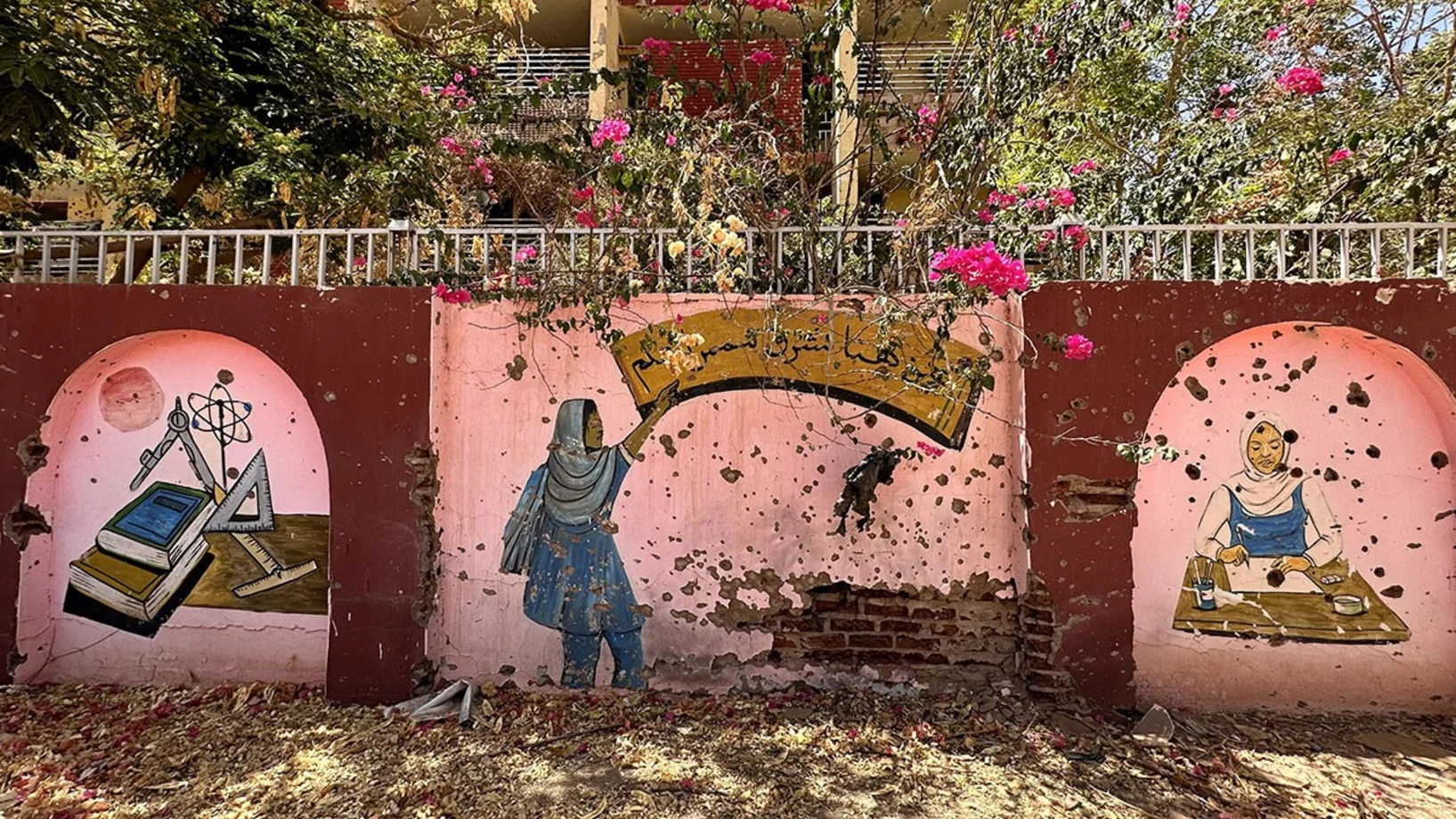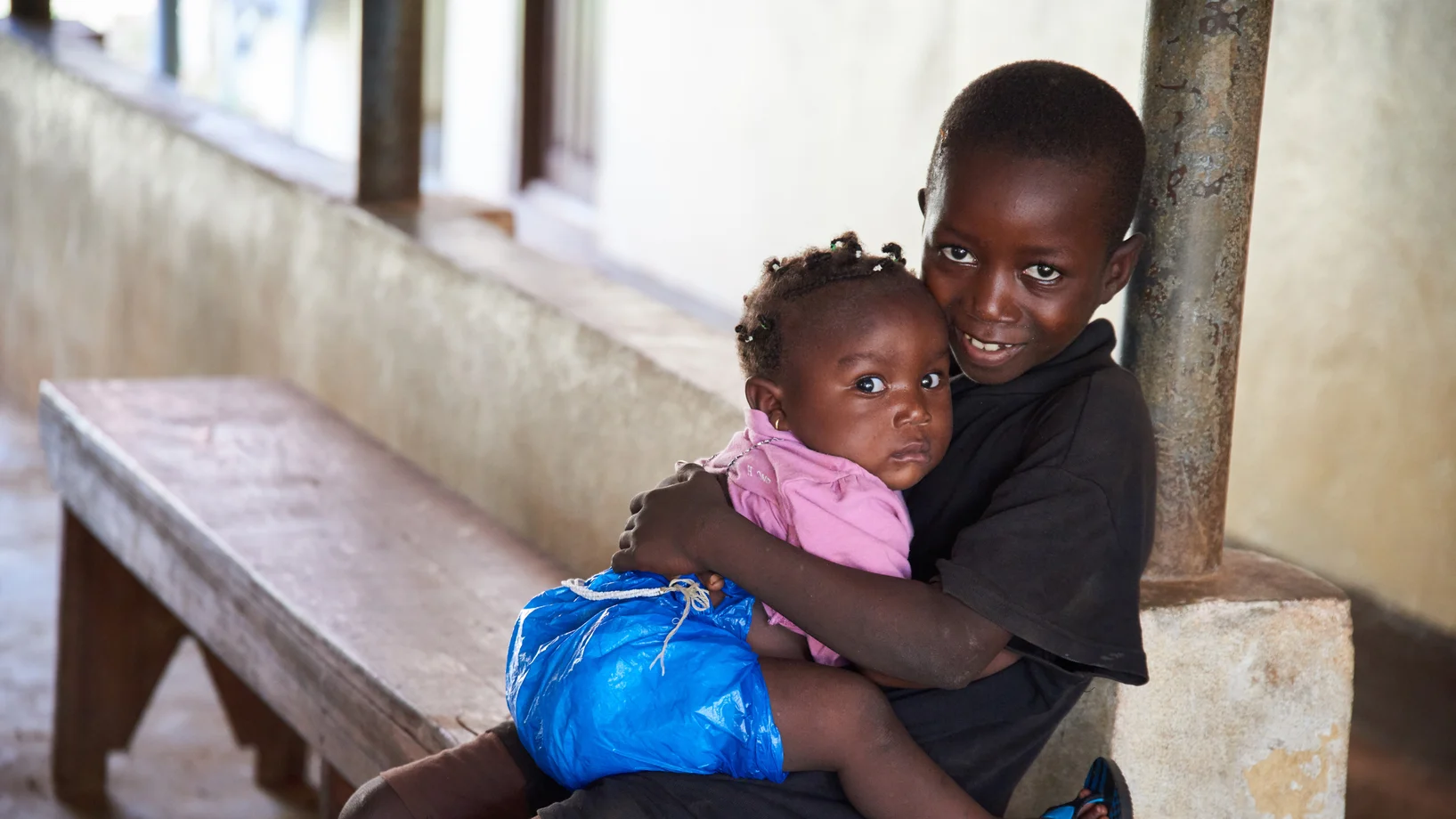Millions of children are affected by wars and armed conflicts. They are injured, killed, separated from their families and witness brutal violence. Kidnapping, rape and the abuse of children as soldiers are also among the horrific side effects of most wars.
The situation
War turns children into human flotsam and jetsam. It drives them from their homes, destroys schools and health centers and strips them of their protective environment. This makes them easy prey for predators; many children are at the mercy of brutal exploitation, systematic abuse and violence. Even after a conflict has ended, children continue to suffer for years from psychological wounds, a lack of care, a lack of prospects and the dangers of landmines and unexploded cluster munitions.
- Child soldiers: Forcibly recruited or lured with empty promises, tens of thousands of children worldwide are abused as soldiers and often forced to kill others themselves. Many children are deprived of any contact with their families for years. They are traumatized and later find it difficult to resume a normal everyday life. When they return to their villages, many search in vain for their relatives. Moreover, the children are often ostracized because they are seen as murderers. Many allow themselves to be recruited again out of hopelessness, desperation and fear, or end up on the streets.
- Sexual violence: In armed conflicts, even very young girls are systematically raped or deliberately infected with HIV, often in front of their relatives. War leaders can demoralize or tear apart families and entire village communities in this way. Again and again, girls and women are abducted and abused as slaves for long periods of time. Many never return.
- Unaccompanied children and orphans: In war, children are repeatedly separated from their families, with many of them becoming orphans. Without the protection of adult relatives, they are often helpless against violence and abuse. Many war orphans, especially girls, have to take responsibility for their younger siblings and have no opportunity to receive a school education.
- Landmines and cluster munitions: Even many years after an armed conflict, landmines and unexploded cluster bombs pose a daily hazard to children. The development of the entire country suffers from this explosive legacy of war.
- Lack of schooling: Ongoing violence means that schools remain closed, teachers are absent or parents keep their children at home out of fear. School buildings are also often used as shelters for soldiers or internally displaced persons. Even after peace has returned, it often takes years before schools are able to operate normally again.
How UNICEF helps
UNICEF’s multifaceted approach is every bit as broad as the impact of war on children is varied.
- UNICEF is committed to freeing child soldiers from military service and reintegrating them into society. Support and education are intended to give these children a new start.
- The boys and girls are initially placed in transition centers or with foster families. At the same time, UNICEF trains staff from local aid organizations to identify such children and search for surviving relatives.
- UNICEF helps young people learn a trade and provides them with starter kits containing the equipment they need to build a secure existence.
- UNICEF provides medical and psychological care to girls who have been raped, covers the cost of surgeries, supports ongoing training for medical staff and supplies medicines. Mobile teams help reach victims in remote regions.
- UNICEF sets up special contact points for unaccompanied children in refugee camps. Photos, video recordings, posters and databases are used to register the children. Aid workers cooperate with village committees, the police and local organizations to search for relatives.
- UNICEF finances prosthetic limbs, wheelchairs and training programs for mine victims.
- In dangerous areas, UNICEF supports programs to clear mined schools, wells and residential zones and educates children and teachers about the dangers of landmines using schoolbooks, handouts, puppet shows and radio commercials.
UNICEF also focuses on health and nutrition, water and sanitation, and education during crises and conflicts.
You can help too.
With your donation, you can give children affected by war the hope of a better life. We thank you from the bottom of our hearts.



